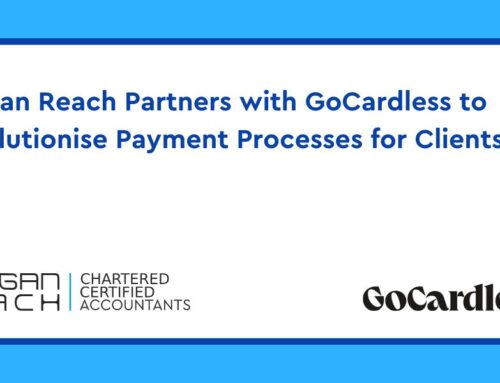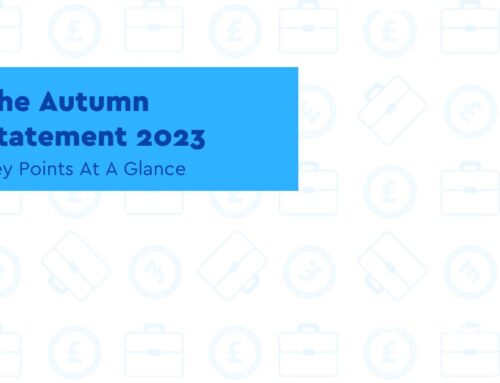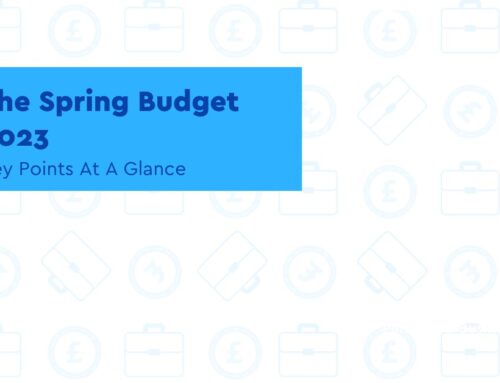Guidance – Payroll
Reporting expenses and benefits
Key Points
- You should register online now or before April 5, 2022 to payroll benefits for 2022 to 2023 tax year
- You’ll need to give your employee notification telling them which benefits were payrolled, and the amount
- You will also need to pay any Class 1A NIC due on the benefits provided by July 22, 2022
If you want this to be your last year of using legacy paper P11D forms, you should register online now or before April 5, 2022 to payroll benefits for 2022 to 2023 tax year.
You can payroll most benefits. It’s quick and easy to register online, but you must do so before the start of the 2022 to 2023 tax year.
The advantages of payrolling benefits in kind are:
- Employers no longer need to submit P11D and P46(Car) forms to HMRC
- Simpler tax codes mean HR teams receive fewer queries from employees regarding tax
- Tax deductions in monthly payroll will be more accurate
- Tax codes for individuals should change less frequently
- Fewer forms for employers to complete at year-end
If you are not yet in a position to move to payrolling you can still move away from legacy paper P11D forms by submitting them online. You can submit them in one click without worrying about posting them to HMRC. It is also a useful first step towards payrolling of benefits in kind and bringing your payrolling processes into the digital age.
On the other hand, it’s important to know that benefit values must be accurately determined and taxed in-year. Changes to benefit values must therefore be tracked, and taxable values amended in real time. HMRC penalties can apply where payrolled benefits are not payrolled correctly.
Employers must (with some exceptions) also wait until the end of the tax year to stop payrolling if it is not right for them. An annual P11D(b) is still due, mitigating the impact of reduced P11D administration.
Payrolling benefits in kind 2021 to 2022
If you registered online on or before April 5, 2021 and you are using the payrolling benefits in kind process, you’ll need to send:
- A P11D for any benefits you’ve not payrolled
- A P11D(b) to tell HMRC about the employer Class 1A NICs due on all benefits (including the payrolled ones)
You’ll also need to give your employee notification telling them which benefits were payrolled, and the amount of the benefit.
You will also need to pay any Class 1A NIC due on the benefits provided by July 22, 2022.
Reporting expenses and benefits 2021 to 2022
If you’ve paid any benefits in kind to employees, you must send P11Ds and P11D(b)s to HMRC no later than July 6, 2022 or you may get a penalty. HMRC charges penalties on a monthly basis and issues penalty notices each quarter until you do file your return.
From April 6, 2022 you will be able to start filing your 2021 to 2022 P11D and P11D(b). We recommend you file using one of the following methods they are more secure, quicker, and easier than filing paper:
- HMRC’s PAYE Online service
- Commercial payroll software
Full information on reporting employer expenses and benefits is available
New employees
If you have a new employee with payrolled benefits, you must tell them how the benefit will be taxed.
Tell the employee that:
- Their tax code may be amended to adjust any benefits from previous employments
- The new benefit will not be included in their tax code
- Any underpaid tax they may be paying through their existing tax code will still be collected by their tax code
Grossing up benefits and expenses through payroll
Reimbursed expenses
Where you reimburse taxable expenses to an employee who has met the initial cost themselves, the payment you make is treated as earnings and is subject to tax and Class 1 National Insurance contributions.
The PAYE tax and Class 1 National Insurance should be deducted through your payroll and reported on the Full Payment Submission on a Real Time Information return. If you intend to voluntarily meet the tax and employee’s Class 1 National Insurance contributions payable on the amount reimbursed, you can make an additional payment to the employee. This amount is also treated as earnings and is subject to tax and Class 1 National Insurance.
Direct Provision of Expenses and Benefits
Where you pay taxable expenses directly to the provider for example to a hotel or through a booking agency, the position is different. This is because the employee has been provided with a benefit in kind. Unlike reimbursed expenses, it is the employee who is responsible for paying the tax on the value of the benefit provided.
Payrolled Benefits
If you are intending to meet the tax and employee’s Class 1 National Insurance contributions on benefits which you provide and have elected to payroll, how you calculate this will depend on whether the benefit is liable to Class 1A or Class 1 National Insurance.
Most benefits are liable to Class 1A National Insurance and the amount of Class 1A National Insurance due should be reported on your P11D(b) form. There are some exceptions to this, for example, train tickets which are treated as travel vouchers and are liable to Class 1 National Insurance.
You will first need to identify whether the benefit you provide is liable to Class 1A or Class 1 National Insurance and then follow the appropriate calculation to ensure the benefit is grossed up correctly.
More information on whether the benefit is liable to Class 1 or Class 1A National Insurance can be found via expenses and benefits for employers.
For guidance on payrolling benefits and how to register, please see Payrolling employees: taxable benefits and expenses.
P11D Form
If the benefit is reported on a P11D form, you can include an additional payment of earnings calculated on the grossed-up basis to cover the tax liability met by the employee. This additional payment is treated as earnings and is subject to tax and Class 1 National Insurance and should be reported on the Full Payment Submission on a Real Time Information return.
This article was sourced from gov.uk
News – Spring Statement
Chancellor’s Spring Statement must be the time to act or economy will drift back to low growth
Key Points
- The CBI’s suite of measures includes policies primed to power productivity, spur innovation, investment and energy efficiency
- Included is the idea of a permanent investment deduction boosting business investment by £40bn a year by 2026
CBI submission reveals how UK can escape a low-growth trap with net £100bn prize for the economy
Around £100bn could be added to the Treasury’s coffers by 2030 if the UK bucks current predictions and achieves a more ambitious 2.5% rate of growth, according to the latest CBI analysis.
Last week, the Chancellor set out his economic vision for the future in the Mais lecture, identifying Capital, People and Ideas as priorities to create a higher trajectory for growth, a lower tax economy and a new culture of enterprise.
The CBI is therefore urging the Government not to ‘waste a single moment’ and use the upcoming Spring Statement as a launchpad to achieve just that. With the OBR projecting post-recovery economic growth of just 1.3-1.7%, the Spring Statement must be fully utilised if the economy is to see higher growth. Without a permanent investment incentive to replace the super-deduction, for example, CBI forecasts predict the UK will remain bottom for business investment among the G7 in 2026.
The UK’s leading business organisation has set out a range of sustainable pro-growth policies aimed at sparking underperforming productivity growth via business investment. The suite of measures (see attached letter for full submission) includes policies primed to power productivity, spur innovation, investment, and energy efficiency, as well as access to critically in-demand skills:
- A permanent investment deduction, boosting business investment by £40bn a year by 2026 and offsetting the impact of corporation tax rise.
- With the current model failing to incentivise investment in the right kind of training, the Apprenticeship Levy should be turned into a Skills Challenge Fund that delivers both employer flexibility and high-quality training – as well as rewarding those firms that outperform on skills investment.
- Bring agility to our new points-based immigration system by creating an independent Council for Future Skills – modelled on the Low Pay Commission – to review current labour shortages and skills gaps, and make recommendations on how to combine business action, skills policies and immigration to deliver a workforce fit for 21st
- Tackle high energy prices by improving home energy efficiency through new grants for decarbonised heating systems, improving energy security and establishing new markets to get green growth going.
- Creating an Office for Future Regulation by building on the success of the Solvency II announcement. Reform regulation to attract investment and become world-leading in online safety and the industries of the future.
Speaking ahead of the Spring Statement, CBI Director General Tony Danker said:
“Business backs the Chancellor’s desire to foster a renewed culture of enterprise and deliver a more ambitious growth rate. His vision set out only last week to leverage the tax and regulatory system to promote business investment, upskill Britain’s workforce and stimulate innovation is the right recipe for future success.
“Faced with a record tax burden, a cost-of-living crisis, wage pressures and the end of the super-deduction, firms will be looking to the Spring Statement for a clear signal that the government’s ambition will be matched by action.
“That is the time to act if we want to push the economy onto a higher growth trajectory. It takes time for policies to kick in and deliver results, so there’s no point in waiting until an autumn Budget. Without serious action, we risk the economy simply drifting towards low growth once the V-shape bounce ends. The Government cannot waste a single moment.
“We all share the vision of a more sustainable and competitive economy that can pay down its debts and invest in public services. But that means backing business and going all-in on the UK’s strengths. Fail to act immediately on flatlining growth and we risk that brighter future slipping through our fingers.”
On the CBI’s proposals for growth and investment, CBI Chief Economist Rain Newton-Smith said:
“This isn’t a case of business going cap-in-hand to government and asking for a handout during hard times. Government support for business provided a lifeline throughout the pandemic, and firms the length and breadth of the country are eternally grateful for that.
“Instead, we’re pitching a series of solutions that will lift the UK from the bottom of the G7 league on investment and drive productivity gains. With a relentless focus on unleashing investment-led growth, we’re showing how to deliver an economy that can respond to mounting spending pressures, while remaining lean, green and competitive.”
On the need to unleash business investment, Rain Newton-Smith said:
“Business holds the key to a future UK economy where everyone can prosper, and that’s why we need to strain every sinew to catalyse business investment now. Make no mistake, business is ready to step-up and unleash the wave of investment we need. But right now, it’s operating with one hand tied behind its back.
“With firms operating on a six to eighteen-month investment cycle, and against huge pressures on cashflow, the window to prevent capital spending falling next year and outperform growth predictions is in danger of slamming shut. Firms need guarantees that government is on their side. Falter now – particularly on a replacement for the super-deduction – and it could be fatal to Britain’s ambitions for growth and competitiveness.”
On ‘going for green growth’, Rain Newton-Smith said:
“With COP26 fresh in our minds, investing in green growth isn’t just the right thing to do, it’s the smart thing too. From decarbonising homes and buildings to building a first-class infrastructure for electric vehicles, the UK has an opportunity to be a world leader in net zero technology and delivery.
“Businesses are already aware of the size of the prize, but lack of clear direction from government is holding them back. By getting strategies and incentives in place now, we can unleash the wave of private investment needed to turn ambition into action.”
On tax and regulation, Rain Newton-Smith, said:
“With business rates continuing to place a crippling burden on firms, particularly those still reeling from the pandemic, reform of the rates system is long overdue.
“By this autumn, we want to see liabilities come down in-line with property values following the 2023 revaluation, remove downwards transition and introducing a permanent cap on the Uniform Business Rate – following an initial freeze.
“We also need to use the system to encourage businesses investment and growth. A 5-year business rates discount on all rates payable for businesses who invest in their properties is the perfect way to do that – while also promoting key net zero objectives like energy efficiency improvements.”
On greening the tax system, Rain Newton-Smith, said:
“Reforming the tax system to incentivise ‘green’ capital investments is vital for both achieving our 2050 net zero target and capitalising on the economic opportunities provided by decarbonisation. That’s why firms are looking to government for a clear strategy on the way ahead.
“By increasing capital allowances to 120% of an investment’s value, we can give firms the confidence to invest early, and reap the rewards of green technologies, without being put off by high upfront costs. Extending allowances to electric vehicle purchases – and rentals – could provide the certainty needed to spur greater investment in sustainable transport.
“For SME’s we should look at establishing a tax credit ‘green’ uplift to help unlock green investments and prevent them from missing out on the opportunities provided by net zero.”
This article was sourced from CBI: https://www.cbi.org.uk/media-centre/articles/chancellor-s-spring-statement-must-be-the-time-to-act-or-economy-will-drift-back-to-low-growth-cbi-chief/
News – Tax
Government launches online sales tax consultation
Key Points
- As committed to at Autumn Budget, the UK government has published a consultation to explore arguments for and against an Online Sales Tax (OST)
- Consultation follows concerns reported by businesses of a potential tax imbalance between in-store retailers and online
- Whilst no decisions have been made on whether to go ahead with an Online Sales Tax, consultation will look at potential designs and impacts on consumers and businesses of implementing such a tax
The Government has launched a consultation exploring the proposal of an online sales tax (OST) to “rebalance the taxation of the retail sector between online and in-store retail”.
Published on February 25, 2022, the Government’s proposal seeks answers on what form an OST should take and how to define an online sale. If implemented, revenue from such a tax would be used to fund reductions in business rates for retailers with properties in England and fund the block grants of the devolved administrations in the usual way.
Proponents of an OST say in-store retailers pay a disproportionate share of business rates, making brick-and-mortar businesses less competitive. The pandemic has accelerated the growing share of online sales, with online sales accounting for 22.9% in March 2020 and 29.6% in December 2020.
The consultation was committed to at Autumn Budget as part of the government’s conclusion to its review of business rates, where stakeholders, including some of the UK’s most well-known high street businesses, called for an Online Sales Tax to help rebalance the tax system through funding a reduction in business rates for the retail sector.
Given the significant changes in the retail market and shift online, the government has taken the decision to reassesses the taxation of this sector, although no decisions have been made yet as whether to implement such a tax.
Lucy Frazer, Financial Secretary to the Treasury said:
“We want to see thriving high streets and a fair economy as we move forward from the pandemic, which is why our business rates review cut the burden by £7 billion for businesses, and committed to look at an Online Sales Tax – given the imbalance identified by some between online and in-store retailers
Whilst we’ve made no decision on whether to introduce such a tax, it’s right that, given the growing consumer trend to shop online, we work with stakeholders to assess the appropriate taxation of the retail sector.”
Should the government proceed with an Online Sales Tax, the precise nature of associated business rate reductions will be considered at a later date.
This article was sourced from gov.uk: https://www.gov.uk/government/news/uk-government-to-assess-whether-online-sales-tax-could-address-tax-imbalance-reported-by-retail-sector
News – Pension
Reducing AE earnings trigger to NI lower earnings limit would bring in 214,000 workers
Key Points
- The reduction in earnings trigger would increase contributions by £124m in 2022/23
- This is compared to increasing the trigger by average earnings growth
A reduction in the auto-enrolment (AE) earnings trigger to £6,396 (the National Insurance lower earnings limit) would bring an additional 214,000 workers into scope, Pensions Minister, Guy Opperman, has stated.
In response to a parliamentary question, Opperman divulged that, in addition to drawing in more workers, the reduction in earnings trigger would increase contributions by £124m in 2022/23, compared to increasing the trigger by average earnings growth.
Furthermore, 78% of the additional contributions would benefit women and 22% would benefit men, he noted.
This comes in the aftermath of the annual review of the AE earnings trigger published last month, which reviewed the 2022/23 thresholds and discovered that by remaining at £10,000, an additional 17,000 workers would be brought into scope.
The decision to keep the earnings trigger at £10,000, according to the government, reflected the “key balance that needs to be struck between affordability for employers and individuals and the policy objective of giving those who are most able to save the opportunity to accrue a meaningful level of savings with which to use for their retirement.”
The automatic enrolment earnings trigger determines at what point an eligible person gets automatically enrolled into a workplace pension.
The qualifying earnings band sets minimum contribution levels for money purchase pension schemes. The minimum of the band is also relevant for defining who can opt in if they earn under the earnings trigger. The government reviews these every year and revises them if appropriate.
Under automatic enrolment, employers must enrol all workers into a workplace pension if they satisfy age and earnings criteria.
Automatic enrolment into a workplace pension with an employer contribution in addition to that of an individual is intended to build on the foundation of state pension entitlement.
The lower limit of the qualifying earnings band sets the minimum amount that people must earn before their employer must start to calculate their pension contributions and include the minimum employer contributions. It therefore determines the minimum lower level of an enrolled workers’ earnings on which they and their employer have to pay contributions.
This article was sourced from Pensions Age and gov.uk
Latest Snippets
Chancellor sets out low tax, higher growth economic vision
Speaking at an annual event for the banking and finance community last week, Chancellor Rishi Sunak has called for a new culture of enterprise, with an economic vision for private businesses and individuals to thrive.
On tax, Sunak said: ‘As I develop the tax strategy for the years ahead, we should examine whether the current system – including the operation of the Apprenticeship Levy – is doing enough to incentivise businesses to invest in the right kinds of training.’
The Chancellor was also asked what could be done to support greater private sector investment in R&D: ‘One obvious answer is to look at our tax regime.’
He highlighted that business spending on R&D amounts to just four times the value of R&D tax relief, compared to the OECD average of 15 times. ‘As I deliver the tax strategy for the years ahead, it would be sensible to make sure our tax regime for innovation is globally competitive and so properly incentivises higher business investment in R&D.’
First budget surplus during COVID-19 pandemic
The UK’s labour market recovery brought in higher-than-expected tax revenues in January 2022, bringing public finances into the black for the first time during the COVID-19 crisis.
Data from the Office for National Statistics showed that strong tax receipts meant public sector borrowing excluding public sector banks was a surplus of £2.9bn last month.
Central Government receipts were £91.6bn, while expenditure totalled £76.3bn.
Meanwhile, tax receipts for April 2021 to January 2022 totalled £597.6 billion, figures from HMRC show.
This is £124.8bn (131%) higher than in the same period a year earlier when the UK faced stringent lockdowns and social restrictions.
Get In Touch
At Morgan Reach, we understand every business needs a little help now and again-especially when it comes to the financial side of things. Therefore, to help our clients and visitors we endeavour to cover as much of the business news as possible. If you are self-employed or run a business and need assistance and advice on how these news could make a difference to you or your business, feel free to get in touch with the experts at Morgan Reach. Our business growth experts at Morgan Reach will guide you through what support is available for you or your business as well as the latest news that may affect you.







